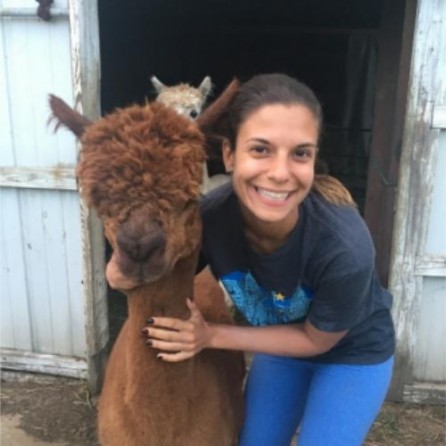
Regina Beach was diagnosed with RRMS in April 2021 and been following the Overcoming MS Program ever since. Regina is also the Trusts and Community Fundraising Manager here at OMS.
It is a bold proclamation to say you are a purveyor of hope, especially in the face of a disease that’s often described as “the most common disabling neurological condition of young adults.”
And yet, Overcoming MS from its humble beginnings, as a list on George Jelinek’s refrigerator to the codified program that has helped thousands of people with MS live well, peddles hope by the boatload.
I was in denial for a year before I decided to get the persistent tingling in my feet checked out at the insistence of my acupuncturist. I was not imbued with much hope when what was supposed to be an outpatient appointment with the neurologist turned into a 5-day hospital stay. It resulted in a diagnosis for which there was no hope of a cure – at least not in the immediate future.
“Hope” is the thing with feathers –
That perches in the soul –
And sings the tune without the words –
And never stops – at all –
For me, Overcoming MS became Emily Dickenson’s little bird, singing to me on the many sleepless nights I had, post-diagnosis. I devoured the OMS website, ravenous for the science, the testimonials, and most importantly, I think, the sense of optimism: I wasn’t doomed and could take steps toward making peace with my body and calming my symptoms.
And sweetest – in the Gale – is heard –
And sore must be the storm –
That could abash the little Bird
That kept so many warm –
I’m 10 months post-diagnosis and the storm in my body is still raging something fierce. I have incomplete remission, which was initially diagnosed as primary progressive MS, then revised when I responded to a course of steroids. Being classified as having relapsing-remitting MS keeps my options open in terms of which DMTs I can be prescribed, but the ‘remission’ part of classification still eludes me.
The hope OMS exudes is palpable in the forum and Facebook Lifestyle Support group where the problem-solving team of thousands of OMSers who have been there and tried that are happy to help the newly diagnosed (like myself) learn to read labels, cook without oil and decipher the 400-page tome that has become my roadmap back to health.
I’ve heard it in the chillest land –
And on the strangest Sea –
Yet – never – in Extremity,
It asked a crumb – of me.
It’s the generosity of time from volunteers, Circle Ambassadors, and community members helping one another that is the essence of Overcoming MS. All the information a person with MS needs to adopt the program is freely available on the website, no strings attached. There’s no paywall or membership fee. The charity exists to spread the word of how lifestyle interventions have helped thousands of people worldwide live well with MS.
The caveat is that hope doesn’t offer a specific date when the thing that’s hoped for will manifest. I’ve been following the program since May 2021, taking vitamin D and telling my family what I was doing and why right away. I shifted my diet, carved out minutes (and then more minutes) from my day to meditate, and am about to try my second DMT to slow my very active MS.
And yet here I am, still hopeful that following the Overcoming MS program will eventually ease my tingles and help my walking the way it has already lifted my fatigue. I am still in what Dr. Roy Swank called “the first fragile year” where I’m learning how to rest, relax and de-stress. I’m reframing the perfectionism that led me to burn out as a public school teacher and settling into a mindset of “good enough is good enough.” I’m gradually dropping the weight of the world that I used to carry on my shoulders, and putting my energy back into caring for myself.
Keep an eye out on our events page to sign up for upcoming events!